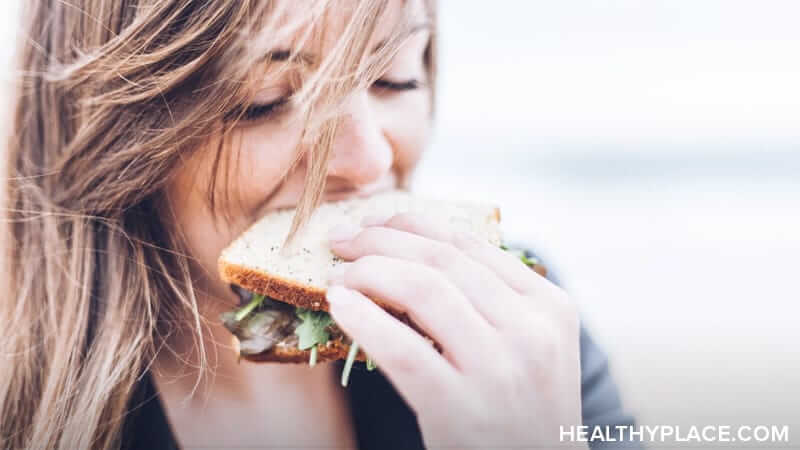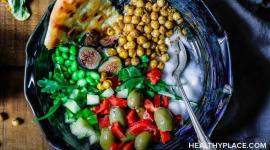Diet and Depression: Is Your Diet Causing Depression?

Researchers are deepening their understanding of the role played by diet in depression, and their discoveries are profound. A Mayo Clinic article reports that many studies have shown a relationship between a poor-quality diet and depression.
The link between diet and depression is strong, but it’s not straightforward. Professionals continue to study the issue to determine if a poor diet or specific foods cause depression. Currently, it appears that there is a back-and-forth interplay between the two, a chicken-and-egg effect. It’s becoming accepted as an undeniable fact: Poor nutrient levels can contribute to depression. But what about the other way around? Is it also that depression causes people to eat poorly?
It seems that both sides are at work. Nutritional deficiencies from a poor diet can contribute to depression. People then turn to junk-style comfort foods, are too tired to prepare good meals, or simply don’t have an appetite (all can be effects of the symptoms of depression). Whatever the reason, diet and nutrition tend to suffer when someone has depression. Nutrient deficiencies and the consumption of harmful foods increase depression, and the cycle continues.
Diet and depression are related. Three important factors in brain health are:
- eating healthy foods that help your depression
- avoiding unhealthy ones
- and the body properly digesting the food you eat
Role of Diet in Depression: Neurochemicals, Depression, and Nutrition
The role of diet in depression became clear when researchers examined neurochemicals. Neurochemicals (also called neurotransmitters or hormones) in the brain work in specific ways to keeps us mentally healthy. Important neurotransmitters in depression are serotonin, dopamine, noradrenaline, and gamma-aminobutyric acid (GABA). Levels of these chemicals in the brain must be within a certain range. Levels that are too low, cause problems with mental health, including depression.
Neurotransmitters are made by the body from the foods we eat. It’s essential that we eat properly. Without the nutrients needed to make enough serotonin and other neurotransmitters, we can develop depression. That’s the link between diet and depression.
A healthy diet for depression is one that supplies the brain with what it needs to do its job well. The brain needs
- Protein
- Complex carbohydrates
- Omega-3 fatty acids
- Vitamins
- Minerals
Diets lacking in these nutrients can contribute to depression. Ensuring that you’re eating foods rich in these nutrients can help. Also important is avoiding a poor diet.
Eating Unhealthy: Poor Diets and Depression
“The research on diet and depression indicates that for many, depression and anxiety may simply come down to a lousy diet.” (Anderson, Cryan, & Dinan, 2017).
Dubbed the “standard American diet,” a diet high in processed foods, sugar, and saturated- and trans fats, sodas, energy drinks, sugary coffee drinks, and the like is now understood to be a diet causing depression. A diet and depression study in 2012 (Enos, 2012) found that
- People who consumed junk food were a whopping 51% more likely to have signs and symptoms of depression than people who did not
- The more junk food people ate, the higher the likelihood was that they would have depression
Sugar, processed foods, and unhealthy fats simply don’t supply the nutrients the brain needs to keep itself healthy. They’re hard on the rest of the body, too. Perhaps surprisingly, this is also bad for depression. Another thing researchers are beginning to understand is that our brain and our gut are intricately connected.
Diet and Depression and the Brain-Gut Axis
From the diet and depression research, we know the brain needs nutrients from the food we eat in order to function healthy and stave off depression. Something in this relationship that is becoming clear in studies is that the nutritious food must be properly digested. Our mental health is connected to how well our gut functions.
Gut-related information that is emerging that plays a part in our mental and physical health includes:
- Depression has been found to have a microbial component (related to the bacteria that resides in the lining of digestive organs)
- The gut is connected to our emotions (think of physical symptoms of depression, anxiety, or stress; how we feel when nervous or attracted to someone; phrases like “gut reaction” and “butterflies in the stomach”
- 95% of the fibers in the vagus nerve (a major nerve pathway that has to do with feelings, functioning of the autonomous nervous system, and digestion) go from the gut to the brain rather than the other way around
This intimate connection is called the brain-gut axis. It’s increasingly recognized that the gut plays a role in depression; therefore, both systems should be treated together to heal depression. A big part of that treatment is a healthy diet.
A poor diet can be a contributing factor in major depression. Food matters and plays a part in the development of depression and someone’s overall experience with depression. It’s also important to continue to eat well once you’ve overcome your depression symptoms.
When it comes to diet and depression, what you eat has an impact on your mental health. Think of both your gut and your brain and the quality of life you’ll have when you replace junk with nutritious, healthy foods. No longer will your diet cause depression.
APA Reference
Peterson, T.
(2021, December 30). Diet and Depression: Is Your Diet Causing Depression? , HealthyPlace. Retrieved
on 2025, December 17 from https://www.healthyplace.com/depression/food-and-depression/diet-and-depression-your-diet-causing-depression



